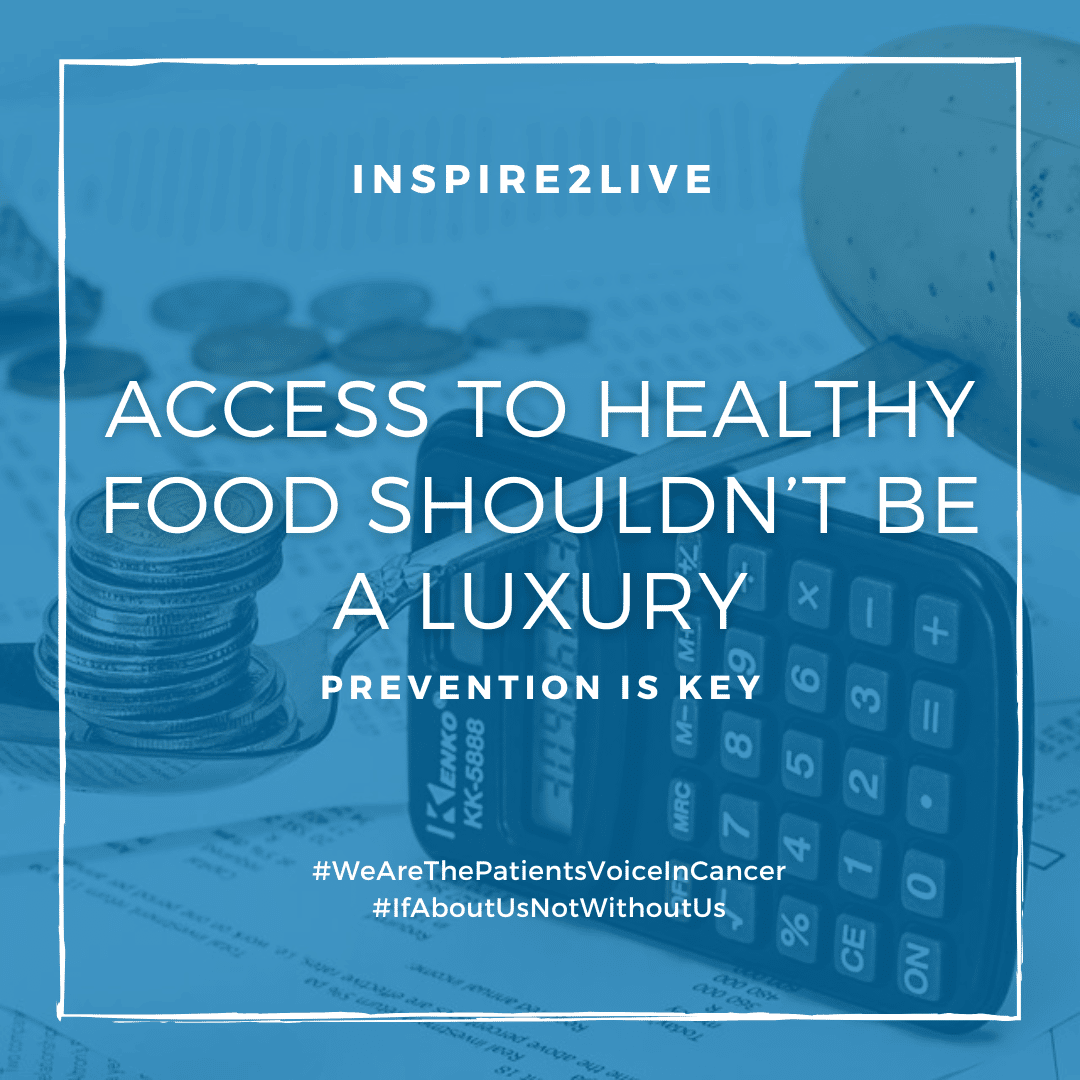When comparing life expectancy between or within countries, there is a clear correlation with economic capacity. Similarly, this wealth correlates with lower risks of certain diseases, including cancer. Diet is an important factor in general health, and specifically in the prevention of cancer occurrence and its development. As a patient advocate and healthcare professional, I can therefore only promote the healthy diets that have proven to help the prevention of this disease. However, the price of healthy foods does not always seem to align, and this is both unacceptable and unfair.
It is a well-known problem that the price of so-called junk foods is significantly cheaper than healthy foods. Not only that, but they are also much more widely available and advertised. How often are you prompted to buy a last-minute orange at the checkout, compared to a high calorie chocolate snack or sugary mint? When did you last see a commercial for broccoli instead of chips, or wholegrain bread instead of cookies?
We already know that diet plays an important role in the prevention of cancer and many other diseases. I simply cannot understand how it is cheaper to buy chips and industrial pastries than a salad or some fruit. We must call for healthy food to be more accessible for everyone, not just those who can afford it.
In many countries the relation has become so strong that obesity has become a new measure of poverty. The direct relation between obesity and cancer risk has been proven and accepted widely. Other conditions such as cardiovascular complications, diabetes and joint weaknesses are also caused by being overweight. Childhood obesity rates worldwide are a clear indicator that the obesity risk factors for certain types of cancer are increasing. Yet when I go to the supermarket and compare prices between fruit and vegetables and ultra-processed food, the competition seems difficult. Something must change. I faithfully believe in nutritional education and the call to lead a healthy life, but something has to happen at the food industry level, because if not, this war is already lost. When we know that ultra-processed foods have serious effects on health, why are industries allowed to pay millions to medical associations or to finance “scientific” studies? Furthermore, part of the reason these foods are so cheap is because of the low quality ingredients used to make them, including artificial flavours, preservatives and cheap fats that harm your body and the environment.
I must say that I know of some industries which are aware of the problem and starting to develop healthy products to retain their “industrial interests”. Innovation for health is always positive and the companies which understand this are the ones which are destined to survive.
What steps will have to be taken for this to happen and who should act on the matter? Industries? Governments? Healthcare professionals? I really don’t know, because I see that it is an issue for which no-one takes serious responsibility and which often hides nefarious interests. Fighting against this means acting against some very powerful groups which generate a lot of economic wealth.
As a patient advocate, I feel compelled to speak out and vehemently criticise what is happening, whilst remaining committed to educating people about healthy eating.
Maria Chacón
Patient Advocate, Inspire2Live

